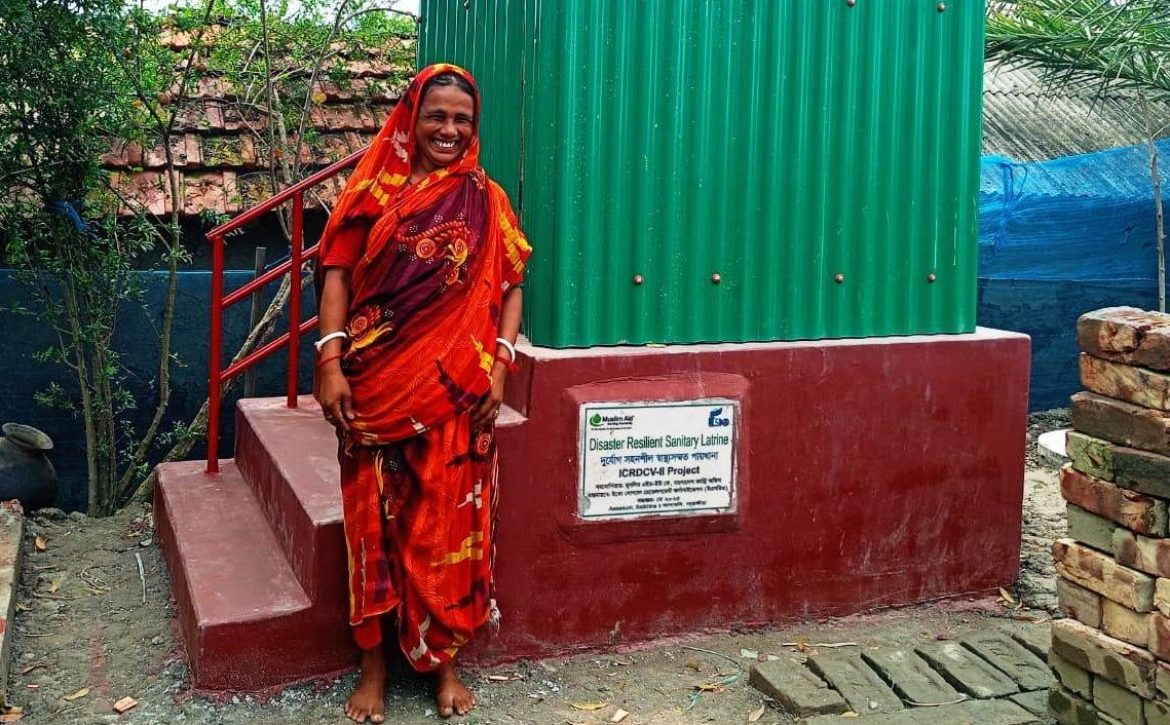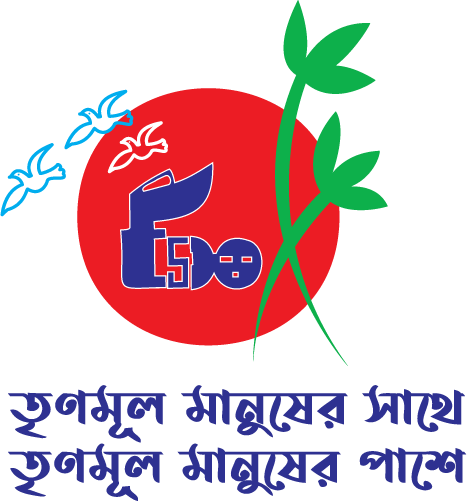
A Toilet, A Dignity: Kakoli Rani Mondol’s Journey from Shame to Hope
In the quiet village of Uttar Puijala, under Shriula Union in Assasuni Upazila of Satkhira district, lives a woman named Kakoli Rani Mondol, aged 31. With her husband Sanjit Kumar Mondol, she works as a day laborer, toiling under the sun just to keep food on the table for their six-member family. Among them is her elderly mother-in-law, who lives with a disability and needs special care.
For years, Kakoli’s family had no proper toilet. What they used could barely be called a latrine two rings, a slab, and a few torn pieces of cloth for makeshift privacy. There were no walls, no roof, and no dignity. The stench from the unhygienic setup often spread across the neighborhood, prompting scolding and humiliation from nearby families. But they had no other choice. With no savings and barely enough income to survive, building a decent toilet was a dream too far. On rainy days, things became worse. With no tin roof to protect the latrine, they had to wait in discomfort for the rain to stop. For women, especially Kakoli, and her differently-abled mother-in-law, each visit to the toilet became a matter of shame and struggle.
Then, in December 2024, a change arrived. Eco-Social Development Organization (ESDO), with support from Muslim Aid UK, Bangladesh Country Office, launched the Inclusive Community Resilience to Disaster and Climate Vulnerabilities (ICRDCV-II) project in Assasuni. The aim was simple yet powerful: to empower marginalized communities to withstand climate risks and social challenges, especially through grassroots, inclusive approaches.
When the project team learned about Kakoli’s situation, they took swift action. Soon, her family had a brand-new, disaster-resilient, and hygienic toilet constructed right beside their home — a structure that not only provided privacy and cleanliness but restored dignity.
This wasn’t just a basic latrine. It was built with care — featuring handrails on the stairs and inside, so her mother-in-law could safely sit and stand. It came equipped with essentials: a bucket, mug, soap dish, brush, and even a covered roof to protect against rain. The cost of construction was about 40,000 BDT, but for Kakoli and her family, its value was priceless.
Today, the foul smell is gone, and so is the shame. Kakoli says her entire family, especially her mother-in-law, is much more at peace. They no longer have to wait out the rain or feel embarrassed using the toilet. What’s more, their neighbors now treat them with greater respect. Their social dignity has been restored, and the burden of hidden suffering has finally lifted.
With a voice full of gratitude, Kakoli says, “This toilet changed not just our health, but our lives. It brought us relief, respect, and hope. I thank ESDO and Muslim Aid with all my heart.”
To Kakoli, this wasn’t just a toilet. It was a gift — one that transformed her family’s daily life, and reminded them that even the smallest acts of support can bring the biggest changes.




